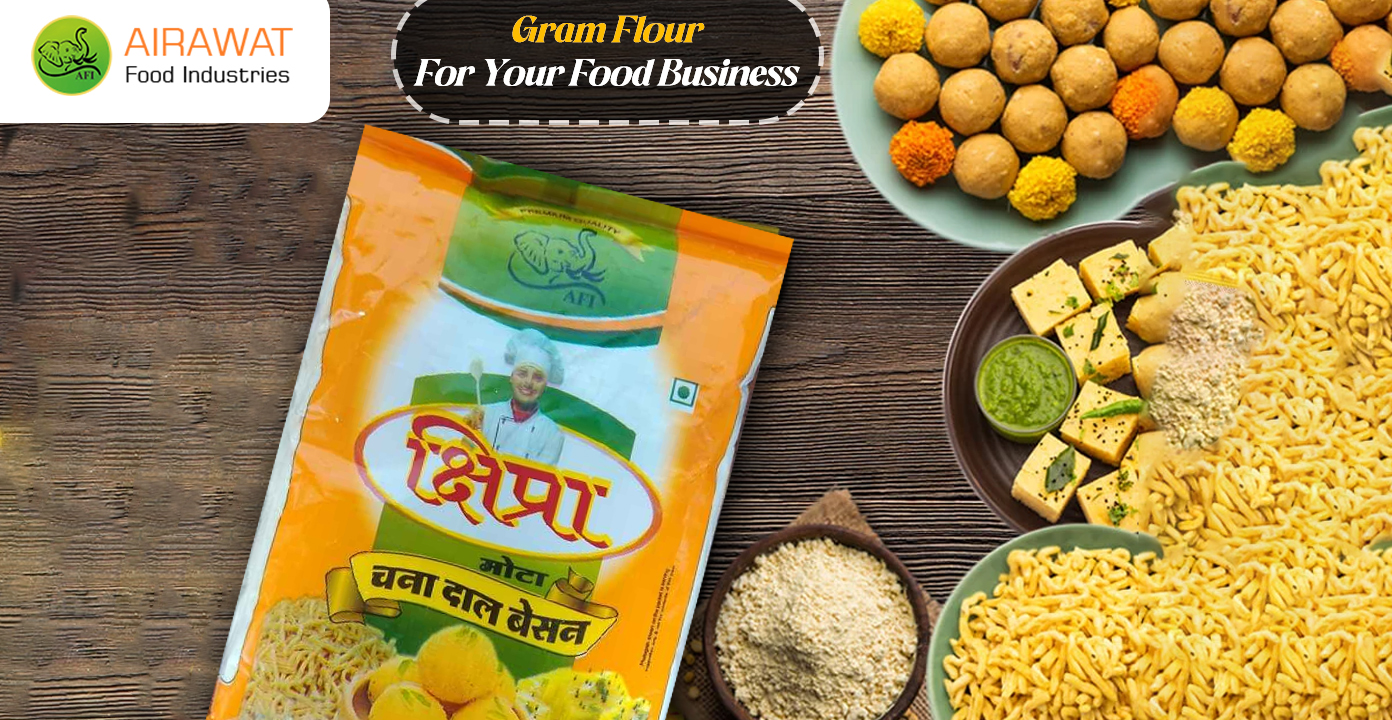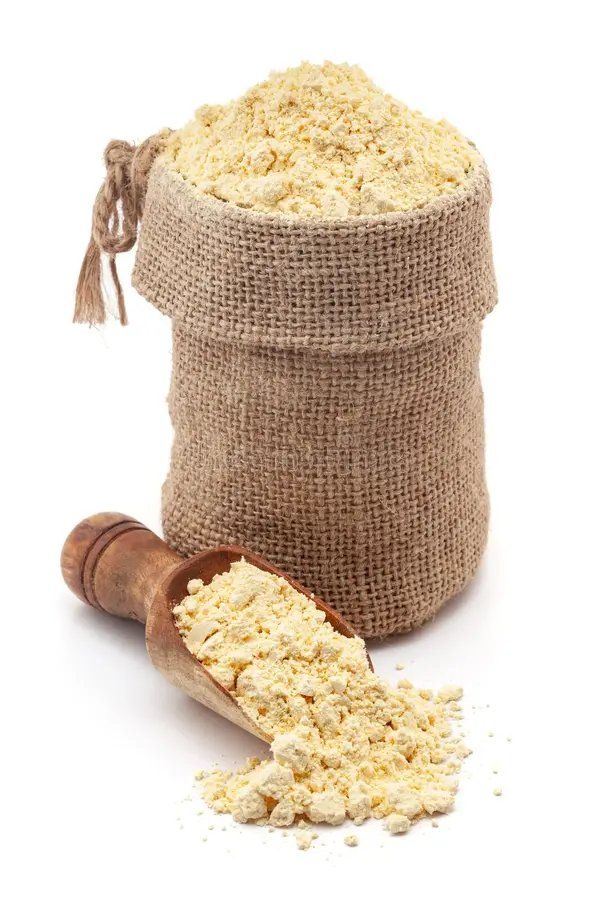
Choosing the right ingredients can make or break a food business — especially when it comes to essentials like gram flour (besan). Whether you're running a restaurant, a packaged snack brand, or a large-scale food processing unit, the quality of your gram flour directly impacts the taste, texture, and reputation of your product. This is why successful food businesses are increasingly turning to Airawat Food — a trusted manufacturer, exporter, and supplier of premium gram flour in India and beyond.
In this we guide you through the key factors to consider when choosing gram flour and explain why Airawat Food is the preferred choice for many top chefs, brands, and commercial kitchens.
Gram flour, also known as besan, is a finely ground flour made from chickpeas (chana dal). It is a staple ingredient in Indian, Middle Eastern, and Mediterranean cuisines, widely used in snacks, batters, curries, gluten-free baking, and more.
But not all Gram flour is created equal. The texture, aroma, freshness, and processing quality determine how well it performs in cooking or food manufacturing. Whether you are producing pakoras, dhoklas, laddus, or gluten-free products, the quality of gram flour will directly influence:
1. Purity and Quality of Raw Material
Look for gram flour made from 100% pure chana dal without any adulterants or mixing of lower-quality lentils. This ensures authenticity and superior flavor.

Airawat Food sources only premium-quality chickpeas and uses state-of-the-art grinding techniques to preserve their nutritional value and aroma.
2. Texture and Fineness
For different food applications, the texture of gram flour matters. Coarse besan may work for laddus, while a finer variety is better for batters or gluten-free baking.
Airawat Food offers customized particle sizes and consistent texture to suit various culinary needs and industrial requirements.
3. Color and Aroma
Fresh gram flour has a naturally bright yellow color and a nutty aroma. Dull color or odorless besan may indicate poor storage or aged flour.
Airawat ensures freshly milled gram flour, packed hygienically to preserve its natural qualities.
4. Packaging and Shelf Life
In the food industry, packaging is crucial. It affects not just product safety but also storage and transportation.
Airawat uses airtight, food-grade packaging with proper labeling, batch tracking, and extended shelf life to support both retail and bulk distribution.
5. Certifications and Hygiene Standards
For commercial and export purposes, it's essential to choose a manufacturer that adheres to FSSAI, HACCP, ISO, and GMP standards.
Airawat Food meets all key quality certifications, ensuring food safety and international compliance for export and bulk supply.
1. Unmatched Quality Assurance
Airawat Food has built a reputation for delivering consistent, high-quality gram flour that meets the demands of global food businesses. With a fully automated production process and strict quality checks, they ensure every batch is pure, fresh, and reliable.
2. Versatile Application in Food Industry
Whether it’s for restaurant chains, packaged snack companies, or caterers, Airawat’s gram flour supports a variety of needs:
3. Bulk Supply for Domestic and International Markets
As a leading supplier and exporter, Airawat Food caters to B2B buyers across India, the Middle East, Africa, and other global regions. They offer:
4. Commitment to Sustainability and Innovation
Airawat is not just a traditional flour mill. The company integrates eco-conscious practices, minimizes waste in production, and explores innovations in food safety and product development — setting them apart from other manufacturers in the market.
Whether you're looking for bulk gram flour supply, custom formulations, or a reliable export partner, Airawat Food offers end-to-end support. Their responsive customer service, strong distribution network, and consistent quality make them a long-term partner for growing food businesses.
To get started:
When your food business depends on consistency, taste, and customer trust, your ingredients must deliver on all fronts. Choosing the right gram flour isn't just about buying a product — it’s about investing in quality, safety, and performance.
Airawat Food combines Ayurvedic principles, modern production techniques, and global quality standards to provide gram flour that elevates your culinary output and brand reputation. It’s no surprise that top chefs and food businesses worldwide prefer Airawat when only the best will do.
1. What is gram flour and why is it important for my food business?
Gram flour, made from ground chickpeas, is a key ingredient in many dishes such as fritters, snacks, and batter. It's vital to choose the right type to ensure quality, taste, and consistency in your offerings.
2. What types of gram flour are available?
There are primarily two types: yellow gram flour (made from yellow chickpeas) and white gram flour (made from white chickpeas). The color and texture differ, and some types may have a nuttier flavor than others.
3. How do I determine the quality of gram flour?
Look for flour that is finely ground, pale in color, and free from contaminants or impurities. It should have a pleasant, nutty aroma, not an off or stale smell.
4. What factors should I consider when choosing gram flour for my business?
5. Can I use any gram flour for all types of food?
Not necessarily. For example, fine gram flour is better for smooth batters, while coarser varieties are used for making snacks and bread.
6. Where can I find high-quality gram flour suppliers?
Research reputable suppliers who specialize in high-grade, organic, or specialty gram flours, especially if your business caters to a specific market segment (e.g., gluten-free or organic).